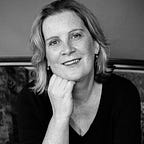It’s Not About You: 5 Tips for a Great Author Reading or Book Event
It’s Not About You: Tips for Great Literary Readings and Author Events
Here’s a tale about the worst — and I mean the absolute, down-and-out worst — author presentation I’ve ever attended.
The reading was part of an Autumn conference that featured a fun an impressive events lineup. When I saw it on the schedule, I recognized our author’s name, but I hadn’t read any of his literary works. Then, shortly after Saturday lunch, he took the stage, where, instead of facing his audience, he did an about face to read to the back of the stage.
He was difficult to hear. Then, after that extended view of his rear end, folks around me clapped and whispered, “Oh, he’s a genius. An eccentric genius.”
“Genius” was not among the comments zinging through my own mind. In fact, I longed to go up there and remind our young author that manners really do maketh the man.
So that’s my worst-case scenario or horror story.
There have been a few runners up, like that time I was on a literary panel with someone who, halfway through the audience Q & A session, set his head on the desk for a little nap. The other panelist and I had to carry the rest of the show as our boy snoozed (or pretended to) beside me.
Or there was that tardy chappie who left us all — the audience, the moderator and us, his fellow panelists — on stage waiting. When he finally arrived, he read a politically-provocative piece that (no surprise) stoked and polarized our audience. As Chappie faced off with one particularly argumentative audience member, the rest of us sat twiddling our thumbs and praying for a microphone failure.
So these are my top three enfants terribles tales from the book-presentation world. In addition to these, there were those authors who have arrived unprepared, uncombed, or who ignored the event manager’s directions to read way, way past their allotted time (a big no-no).
By the way, I just realized that all of my enfants terribles authors were male.
Now, let’s talk about those other authors who arrive promptly and prepared to give the book event their all. They are groomed and gracious and respectful.
For example, a few weeks ago, I attended a two-author book launch in which the two mystery writers interviewed each other. I rarely read mystery fiction, but the event was lively and informative, as was the audience Q & A session.
Why? Because these two authors made it so.
Tips for a Great Author Book Reading or Literary Panel Presentation
Hand on heart: I’ve never, ever read with my back turned to my audience.
However, when I look back at my own author presentations — especially in the early days — there are some that, at best, were ‘meh.’
So what or how could I have done it better? What or who had I neglected or shortchanged?
The audience.
The audience.
Did I mention the audience?
Author, Be Humble
So you’ve just had a book released. It may be destined to become a bestseller or optioned for a Hollywood blockbuster.
But you haven’t solved world hunger or global warming or discovered a permanent cure for rare pediatric or adult cancers. Have you?
So be humble. Not self-effacing. Not humble-bragging. Just humble and human and grateful.
Nobody expects a stand-up comedy show or a free writing seminar. But we’ve abandoned our living rooms or our after-dinner coffees just to come out and hear you. So we expect to be inspired. We expect to be impressed. We expect to be included and engaged.
Author Readings and Literary Events : 5 Tips to Engage Your Audience
- Say ‘thank you.’ Event managers have invested time and resources to host you, the author. Equally, the audience members have taken the time to attend. So ‘thank you’ is a really good place to start. And finish.
- Start with an audience question or poll or a good story. Recently, when I presented on my latest book at our local literary festival, I asked the audience to raise their hands by group: those whose parents/grandparents/children/great grandparents had been born in another country/and/or those who were native American. This assured the listeners that our afternoon event would be about our shared immigrant (or native) history — not just about me and my book.
- Prepare. Prepare. Prepare. Don’t fumble through your book or suddenly dither or decide (in real time; on stage) about what you’re going to read. Make sure your room and your audio visuals are push-button ready. If you tell an anecdote from your own life, use humor carefully and kindly. Please, no mimicked or mangled accents.
- Look up! In my teacher education college in 1980s Ireland, one professor drilled and then tested us on how well we scanned our classrooms, while also writing on the blackboard behind us. Look up from your notes or index cards to engage your room. Look left, right and make eye contact with the folks in the last row. Repeat.
- Manage the Q & A. Sans a designated panel moderator, it’s your job to ensure that each audience member gets his or her turn, and a free-for-all question and answer (Q & A) session can end badly. Some folks are more long-winded than others. Some folks pose those non-questions that are really a personal anecdote or self-promotion. If room acoustics are a problem, repeat the question from the podium. For those complex or extra provocative issues or responses, table the answer until you are one-on-one with that person.
Book events and literary discussion panels are just one aspect of your book promotion plan. But in addition to (or more) than your clever words on a page, your reading audience will remember you, the person. More, a la Maya Angelou, they will remember how you made them feel.
